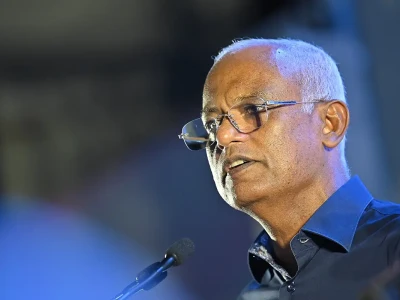
Parliament’s 2-hour sittings raise efficiency concerns
The 20th Parliament tackled 86 items during this term, including bills, resolutions, and motions.
The 20th Parliament has concluded its sittings for the year, and the statistics released paint a concerning picture of its efficiency and engagement. Between October 1 and December 12, the Parliament held 27 sittings, spending a total of just 67 hours in debate—a mere average of two hours per session. Despite the limited time spent in discussions, significant legislative decisions were made during this period, sparking questions about the quality of deliberation and democratic participation.
During the most recent term, Parliament passed crucial legislation, including constitutional amendments to redefine the territory of the Maldives and changes to tax laws affecting cigarettes and vaping. These are monumental decisions with far-reaching implications. However, the brevity of debates raises concerns about whether these issues were thoroughly researched and deliberated.
The statistics suggest that the parliamentary majority, dominated by the PNC, may have rushed decisions without adequate input or scrutiny. For instance, sittings often ended earlier than scheduled due to a lack of quorum or insufficient participation in debates. A trend was observed where voting sessions, previously extending until the afternoon, were concluded before midday or canceled altogether for lack of agenda.
The 20th Parliament tackled 86 items during this term, including bills, resolutions, and motions. Out of these, 63 were resolved, amounting to a 73% completion rate. A breakdown of the legislative activity highlights the dominance of government-backed proposals:
-
Government proposals: 13 out of 15 passed.
-
Bills: 20 out of 29 introduced were approved.
-
Opposition resolutions: Of the three proposed, only one was passed.
This discrepancy underscores the limited influence of the opposition in shaping legislative outcomes. Furthermore, while 23 ministerial questioning motions were raised, only 13 were resolved by the term end. Four emergency motions were also passed, showing that pressing issues were prioritized when necessary.
The opposition, primarily represented by the MDP, has expressed increasing dissatisfaction with the current parliamentary dynamics. They allege that opposition members are being systematically stifled, with some expelled from sittings without valid justification. This lack of engagement and suppression of dissent weakens the democratic process, reducing parliamentary debates to procedural formalities rather than platforms for meaningful discourse.
The imbalance in decision-making, compounded by the curtailed time for debates, highlights a concerning pattern. With major legislative decisions made in such haste, the perception of a rubber-stamp parliament rather than a functioning legislative body grows stronger.




